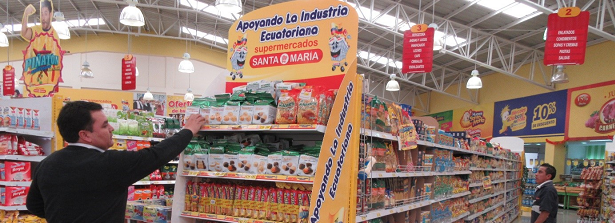RUAF analysis report “The role of private sector in city region food systems”

Today, food security and the need for a food policy, increasingly feature on the agenda of cities and city regions. RUAF Foundation, supported by the Food & Business Knowledge Platform (F&BKP), has published an analysis report in order to better understand the role of the private sector in building more sustainable city region food systems.
Context
It is recognized that urban growth, urban poverty, food price hikes, climate change, changes in consumption patterns and the increase in diet-related health problems, all require attention. The rapid expansion of cities puts a geographical burden on agricultural land, threatening rural livelihoods, peri-urban food production and supply chains, and poses challenges in the areas of water management and use of natural resources. In this context, city region food system development will need to go hand in hand with enhancing sustainability of more distant value chains to the benefits of smallholder producers and urban consumers.
Analysis study
Private sector actors have the potential to contribute to more sustainable city region food systems, but up to date information on their role and initiatives is scarce. Little is known about their drivers for engagement, the extent and type of impact of their interventions, their needs for support and enabling policy environments. Therefore, RUAF Foundation, supported by the Food & Business Knowledge Platform (F&BKP), undertook a study in order to better analyse the role of the private sector in building more sustainable city region food systems. The analysis report is authored by Marielle Dubbeling, Joy Carey and Katrin Hochberg.
The aim of the study is to provide suggestions for private sector actors, policy support mechanisms, and to identify key lessons learned. The two overarching questions addressed in this study are:
- How can the private sector help shape more sustainable city region food systems?
- What business and policy environment is needed to better engage the private sector in building sustainable city region food systems?
Based on three city region case studies, 19 smaller case studies featuring private sector and government interventions, and a complementary literature and online review, this study gives an overview of:
- The type of private sector that is currently engaged in building more sustainable and resilient CRFS.
- Current private sector roles and innovations.
- Drivers for increased engagement from private sector players.
- The support needs to increase existing or new private sector engagement.
- Recommendations for the private sector.
- Policy recommendations to support private sector participation and innovations.
The report further explores the concept of a sustainable and resilient city region food system and addresses some issues in need of further exploration to help advance the debate. By doing so, this study aims to serve as a starting point for enhancing private sector engagement and putting in place (support) mechanisms to build more sustainable and resilient city region food systems in different city regions.





